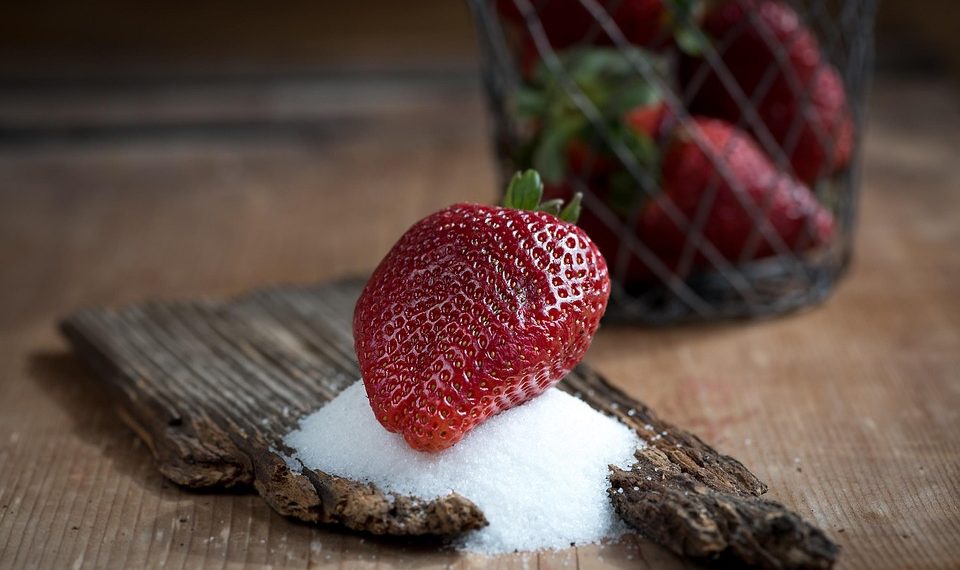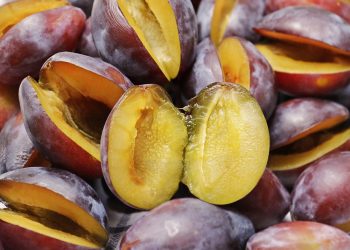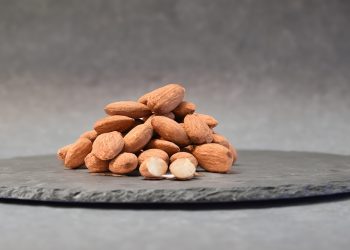Sugar. It’s that sweet little devil that adds joy to your treats but can wreak havoc on your health. If you’re looking to cut back on sugar without sacrificing flavor, you’re in the right place. Let’s dive into 10 natural sugar substitutes you’ll love to try.
Understanding sugar substitutes is key to making healthier choices for your body and your lifestyle. They can help maintain sweetness while reducing calorie intake and improving overall wellness. Isn’t that what we all crave? A little sweetness without the guilt?
Contents
Why Choose Natural Sugar Substitutes?
Sugar can lead to weight gain, spikes in blood sugar, and even chronic diseases. By embracing natural sugar substitutes, you’re not just cutting calories; you’re nurturing your body. Natural substitutes often come with added health benefits like antioxidants and vitamins.
Let’s explore the options that will not only satisfy your sweet tooth but also keep your health intact.
1. Honey
Honey isn’t just sweet; it’s nature’s gift! Packed with antioxidants, vitamins, and minerals, it’s a powerhouse.
- Benefits: Natural antibacterial properties, aids digestion, and can soothe sore throats.
- Usage: Use honey in tea, on toast, or in your favorite baking recipes. Just remember, it’s sweeter than sugar, so you’ll need less!
2. Maple Syrup
Who can resist the rich, earthy flavor of maple syrup?
- Benefits: Contains antioxidants, minerals, and has a lower glycemic index than sugar, making it a better alternative for blood sugar control.
- Usage: Drizzle it over pancakes, mix it into salad dressings, or use it to sweeten your morning oatmeal.
3. Agave Nectar
Agave nectar has a mild flavor that makes it a versatile option.
- Benefits: Low glycemic index, which means it won’t spike your blood sugar as quickly as regular sugar.
- Usage: Perfect for sweetening beverages, yogurt, or even baking. Use sparingly, as it’s sweeter than sugar.
4. Stevia
Stevia has become a household name among sugar substitutes.
- Benefits: Zero calories and doesn’t affect blood sugar levels. Plus, it’s derived from the leaves of the Stevia plant.
- Usage: Use in beverages, smoothies, or baking. A little goes a long way!
5. Coconut Sugar
Coconut sugar is made from the sap of the coconut palm tree.
- Benefits: Contains trace minerals and has a lower glycemic index compared to regular sugar.
- Usage: Substitute it for brown sugar in recipes or sprinkle it on top of your favorite desserts for a caramel-like flavor.
6. Monk Fruit Sweetener
Monk fruit sweetener is gaining popularity as a calorie-free alternative.
- Benefits: Natural sweetness without the calories, and it contains antioxidants known as mogrosides.
- Usage: Great for baking or sweetening drinks. It’s much sweeter than sugar, so adjust accordingly!
7. Erythritol
Erythritol is a sugar alcohol that’s naturally found in some fruits.
- Benefits: Almost zero calories and doesn’t spike blood sugar levels.
- Usage: Perfect for baking or as a tabletop sweetener. It has a similar taste and texture to sugar.
8. Date Sugar
Date sugar is made from dried dates and is a whole food sweetener.
- Benefits: Full of fiber, vitamins, and minerals.
- Usage: Use in baking or sprinkle on oatmeal and yogurt for a natural sweet kick.
9. Xylitol
Xylitol is another sugar alcohol that can be found in many fruits and vegetables.
- Benefits: Low glycemic index and promotes dental health by preventing tooth decay.
- Usage: Use in beverages or baked goods. Keep in mind that it can be harmful to pets, so store it safely!
10. Date Syrup
Date syrup is a thick, sweet syrup made from dates, rich in flavor.
- Benefits: High in antioxidants, vitamins, and minerals.
- Usage: Drizzle on pancakes, mix into smoothies, or use as a sweetener in baking.
How to Choose the Right Substitute for You
Not every substitute works for everyone. Your choice depends on your taste preference, dietary restrictions, and the intended use. Here are some tips:
- Taste Test: Experiment with different substitutes to find your favorite flavor.
- Consider Your Health: If you have diabetes, look for options with a low glycemic index.
- Read Labels: Some substitutes come with additives. Choose pure products whenever possible.
Incorporating Sugar Substitutes into Your Diet
Switching to natural sugar substitutes doesn’t have to be a daunting task. Here’s how to ease into it:
- Start Small: Swap out sugar in your coffee or tea first.
- Experiment with Recipes: Use substitutes in your favorite recipes to see how they perform.
- Be Mindful: Pay attention to how your body feels. You might find that certain substitutes work better for you than others.
The Bottom Line
Choosing natural sugar substitutes is a fantastic way to keep your meals delicious while nurturing your body. With options like honey, maple syrup, and stevia, you can enjoy your favorite foods without the guilt.
Remember, moderation is key. No matter how “natural” a substitute may be, it’s important not to overdo it.
Are you ready to sweeten your life without the sugar crash? Try one or more of these substitutes and discover the joy of guilt-free sweetness!
FAQ
1. Are natural sugar substitutes safe for everyone?
Most natural sugar substitutes are safe, but it’s always good to consult with a healthcare provider, especially if you have specific health conditions.
2. Can I use substitutes in baking?
Yes! Many substitutes can be used in baking, but you may need to adjust quantities.
3. Do sugar substitutes taste the same as sugar?
Taste can vary greatly between substitutes. It’s best to experiment to find your personal favorites.
Embrace the sweetness of life with these natural sugar substitutes. Your taste buds and your body will thank you!
Get Your FREE Natural Health Guide!
Subscribe now and receive our exclusive ebook packed with natural health tips, practical wellness advice, and easy lifestyle changes — delivered straight to your inbox.














